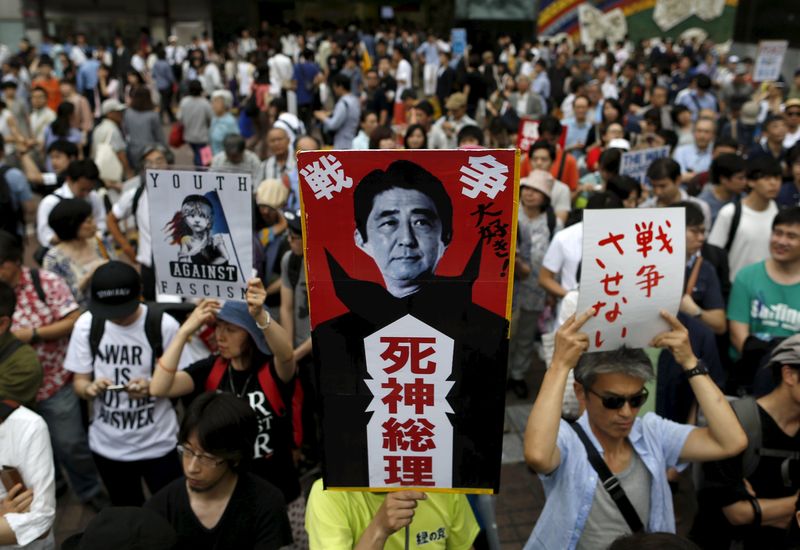TOKYO (Reuters) - Support for Japanese Prime Minister Shinzo Abe's government is slipping in the face of doubts about his more muscular security policy, a newspaper survey released on Monday showed, amid concerns Abe's ruling party wants to muzzle its media critics.
Abe has promised key ally Washington that he would enact bills to implement a historic defence policy shift this summer. But in a sign that goal looked tough, his ruling bloc last week extended the current session of parliament to Sept. 27.
The percentage of voters opposing Abe's cabinet rose to 40 percent, the highest since he took office in December 2012 promising to reboot the economy and bolster Japan's defence, according to a survey by Nikkei business daily and broadcaster TV Tokyo. Support slipped three points to 47 percent.
A majority - 56 percent - opposed Abe's plan to end a self-imposed ban on exercising the right of collective self-defence, or militarily aiding a friendly country under attack, a move that could allow Japanese troops to fight abroad for the first time since Tokyo's defeat in World War Two 70 years ago.
Echoing other surveys, the poll showed 81 percent feel the government's explanation for the change has been insufficient.
Abe's push to enact the bills in parliament, where his ruling bloc has a comfortable majority, has run into glitches.
On Saturday, his Liberal Democratic Party (LDP) sought to limit fallout from remarks by lawmakers backing Abe that critics said threatened press freedom.
One MP was stripped of his post as head of the LDP's youth division and three others reprimanded. Abe had declined to apologise for the lawmakers' remarks at a study group, including a suggestion that corporate sponsors should be pressured to withdraw advertising from media critical of the government.
That flap followed another blow earlier this month when a respected constitutional scholar speaking at a parliamentary panel shocked his LDP hosts by saying the security legislation would violate Japan's pacifist constitution, a view shared by the majority of academics.

Abe's ruling coalition can push the bills through parliament given its majority, but any perception it had done so without enough debate could further dent his support rates even as he eyes re-election as LDP president in a party poll in September.